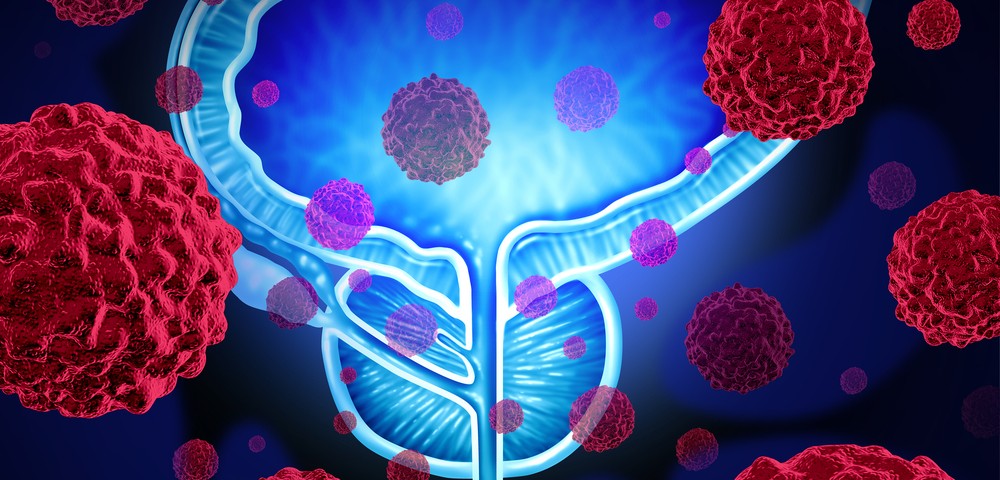A signaling pathway that promotes prostate cancer growth may offer a new therapeutic target for advanced prostate cancer patients, researchers say in a study titled “Checkpoint Kinase 2 Negatively Regulates Androgen Sensitivity and Prostate Cancer Cell Growth,” and published in the journal Cancer Research.
Prostate cancer patients respond to androgen deprivation therapy (ADT) in the early stages of the disease, but later develop incurable castration-resistant prostate cancer (CRPC).
University of Virginia School of Medicine researchers have discovered that a cellular pathway mediated by checkpoint kinase 2 (CHK2), and activated by radiation, regulates prostate cancer. Specifically, upon knocking down expression of CHK2, prostate cancer cells showed an increased sensitivity to low androgen levels.
Dan Gioeli, PhD, a researcher with the Department of Microbiology, Immunology and Cancer Biology and the University of Virginia Cancer Center, and the study’s lead author, said in a press release, “Now we have a novel link between two different standards of care for advanced prostate cancer. For locally advanced prostate cancer, radiation therapy is one of the standards of care, and that induces DNA damage, which would activate this pathway. Another standard of care for metastatic prostate cancer is androgen ablation, and that acts to inhibit androgen receptor activity. Now we have a new molecular understanding of how those two different standards of care might be connected.”
These findings support a new strategy based on disrupting CHK2 signaling, and may allow researchers to develop novel therapeutic approaches to sensitize CRPC to ADT and radiation. In fact, current pharmaceutical companies are developing drugs that inhibit CHK kinases, and Dr. Gioeli hopes these new findings will prompt the beginning of clinical trials. “The next steps are to see whether our predictions about … targeting this pathway could enhance cancer-killing in response to radiation or androgen ablation. Perhaps it would lead to a three-way combination where we would be looking at how androgen withdrawal sensitizes tumor cells to radiation therapy and whether we can further enhance that sensitization by inhibiting this pathway,” Dr. Gioeli concluded.

